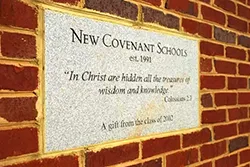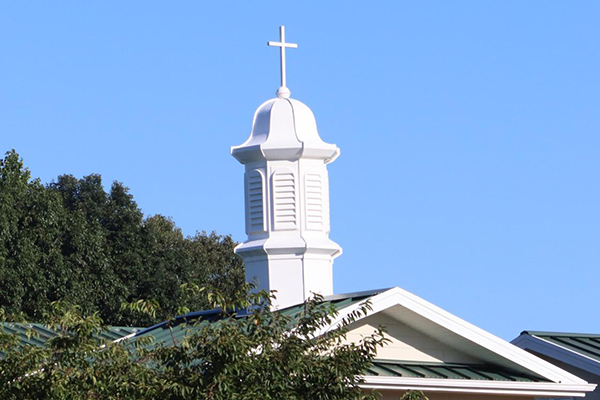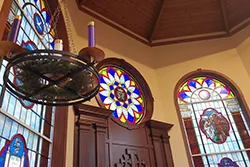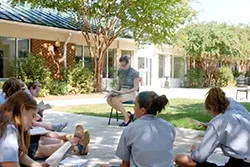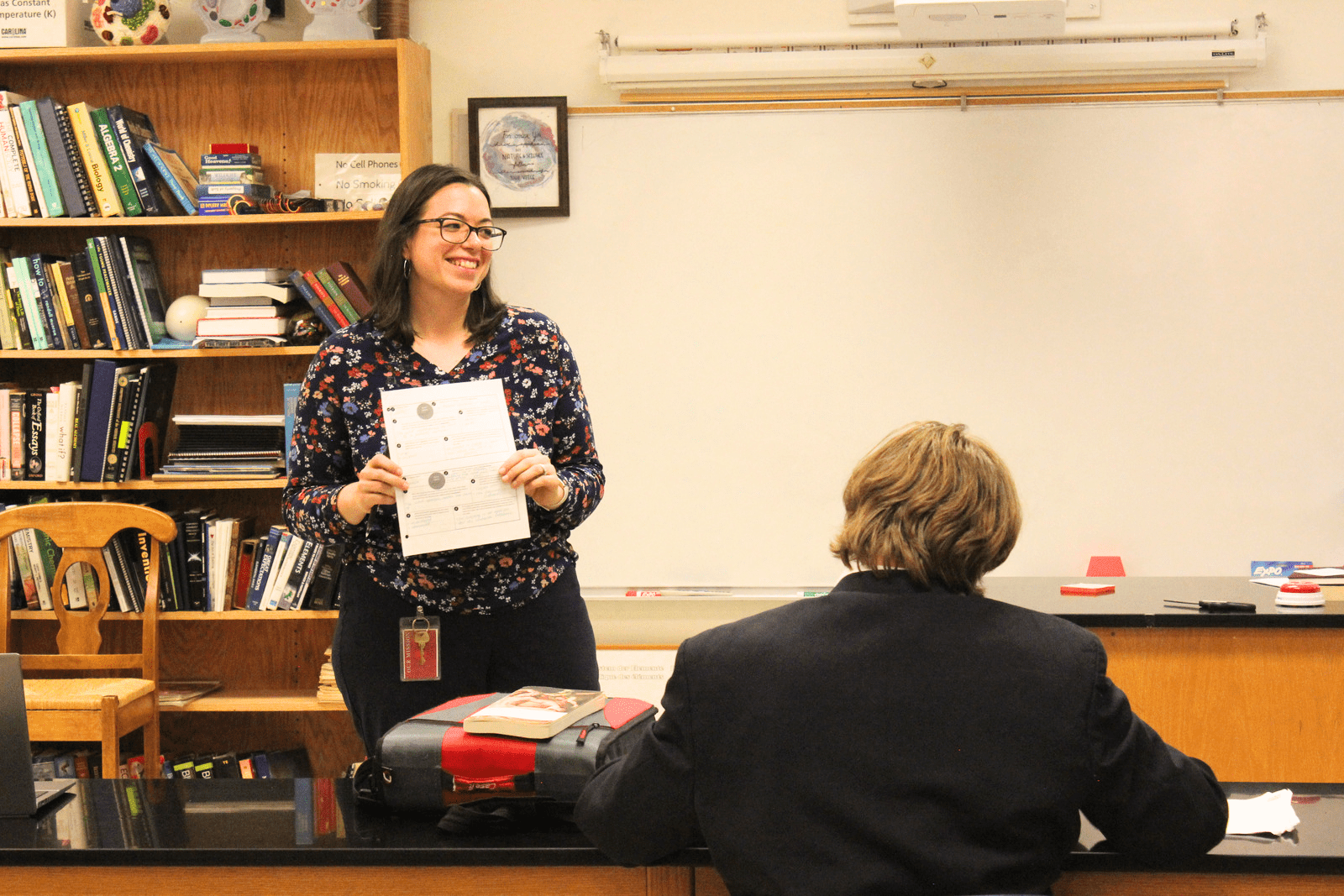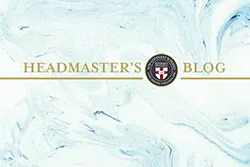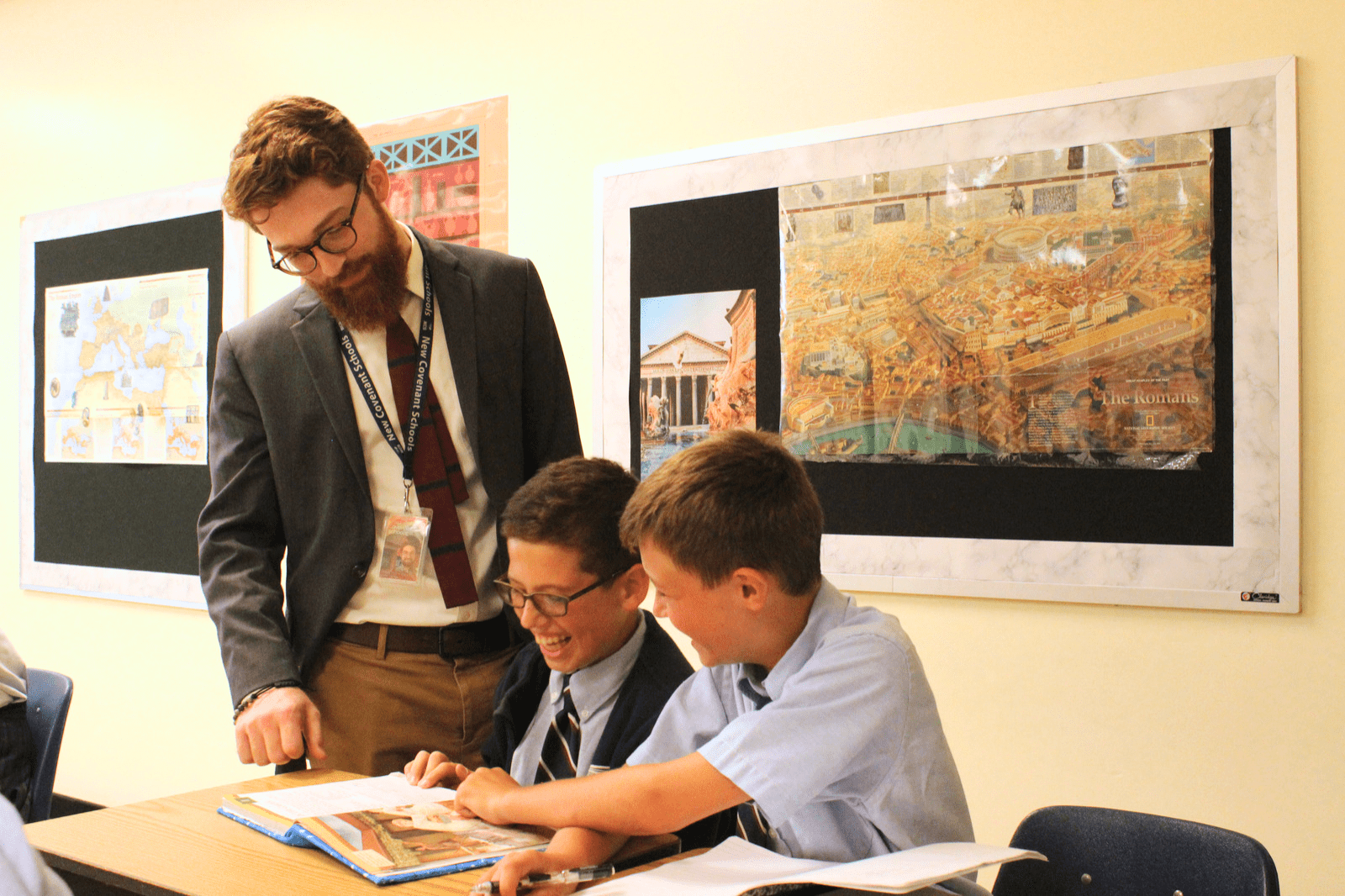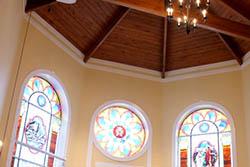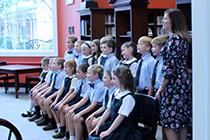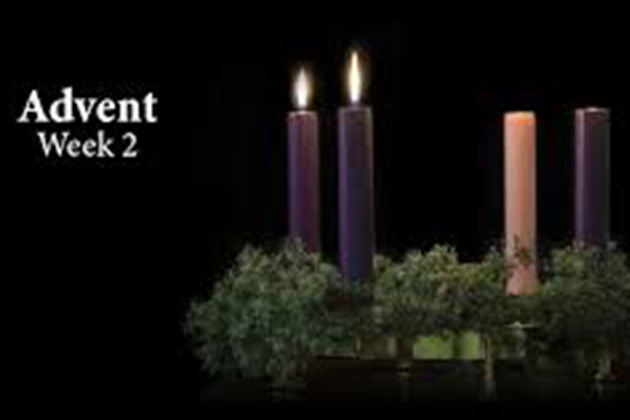The Time of our Lives is a blog series on the Church calendar and discipleship running from Advent 1 2023 through Trinity Sunday, 2024.
Epistle: Romans 15:4-13
Gospel: Luke 21:25-33
Blessed Lord, who hast caused all holy Scriptures to be written for our learning; Grant that we may in such wise hear them, read, mark, learn, and inwardly digest them, that by patience and comfort of thy holy Word, we may embrace, and ever hold fast, the blessed hope of everlasting life, which thou hast given us in our Savior Jesus Christ. Amen.
The second Sunday in Advent is the second Sunday of the new church year. During the long shadows of the days of Advent, we quiet our hearts and make ourselves receptive to the Spirit of God in a renewed way. Advent, above all the seasons of the church year, is about orientation. In these four successive weeks, we situate ourselves liturgically into the same space occupied by those before the coming of Jesus. Our piety is particularly sensitive to Advent, and is shaped by it, especially when seen as the memory of the preparation for the coming of the Messiah. We, the people of God, are deeply conscious of the long period of expectation that preceded the birth of our Savior. We seek to inhabit that world for a month, which of course we can’t quite do, any more than we can relive what life in America was like before July 4, 1776. One way to do it best is to read the texts in the lectionary from the perspective of one who lived before Christ.
The readings for Advent 2 contribute to our spiritual formation with a single foundational truth:
Heaven and earth will pass away, but my words will not pass away.
For whatever was written in former days was written for our instruction, that through endurance and through the encouragement of the Scriptures we might have hope.
The epistle and the gospel agree. The scriptures are the word of God. They were written for our learning. They were written for our encouragement. They are the basis of hope.
I often ask my students about our advent candles, why there are four, and what they might mean. I get a variety of answers, but eventually we work our way down to the idea that we were counting. I ask how many of them, when a birthday is coming up, begin to have thoughts like, “It’s only 10 days to my birthday!” Time is a funny thing for children, and one of my sweet little 6th grade girls said, “I’m thinking about my birthday!” I asked her when it was and she said, “At the end of February.” That’s months away but she was already counting.
The point is that her birthday had two effects: 1) she was measuring time by counting the days; and 2) she was oriented toward a future happiness of which she was quite confident. Children anticipate their birthdays with hope. The day is singularly about them. Parties, pictures and presents are involved, and there is always cake and ice cream, which tastes better on your birthday. When children look forward to their birthdays, we know that none of them doubt that mom and dad are going to forget, or that mom and dad will somehow disappoint. Birthdays for children are held in the sacred sobriety of what we call hope. The party is a future reality to be sure, but it’s never in doubt. Children live in hope because they trust the veracity of their parents.
In a similar way today’s theme to which our calendar commands our attention is simply this: hope. When we talk about Christian hope – and particularly eternal life – we are talking about a future reality to be sure, but we define that reality with the single word, HOPE. This word does not imply doubt or a “hope so” calculation of probability. We’re not playing the odds. A Christian lays hold of hope as a firm, albeit unreached reality. We live in hope because we trust the veracity of God.
Hope is one part of that triad of virtues, faith, hope and love. We call them theological virtues because we say that they are infused in our being by virtue of our creation. It’s not easy to explain love, the attachment we have for things, for people, and for God himself. We say that it’s in our nature. Broken as we are, human beings are still believing beings, loving beings and dare I say hopeful beings. These are the virtues that most powerfully orient us to God.
Like faith and love, hope is unique. It’s the one virtue that reveals that we are “on the way,” we are on a journey. Precisely because it is a “not yet” proposition, life becomes a journey to attain things that we do not currently possess. More particularly life is a process of becoming that which we are not now. Hope is future oriented.
The audience to which Paul was writing was a largely Gentile Church. In the epistle listed above, Paul transfers the cornerstone beliefs of the ancient Jewish community to the Gentile world. There were three things the Jews possessed in abundance, which they nurtured for centuries, and which things would be equally necessary for Gentiles newly introduced to the Kingdom of God.
First, the Gentiles world would need to learn and adopt from the Jews the mindset that the word of God – God’s speech – is a mainspring of faith. In speaking to men, God does not cause them to know mere objective facts, but he throws open to them his own being. When he speaks, he reveals who he himself is. Yahweh of the Jews speaks to men; he writes down what he says, and often as not, he puts a date on it.
Second, the Gentile world would have to learn that the Scriptures (the things written in former days) are for our learning, our instruction. When we come into the church, the Bible – the whole of it – becomes our property. The story of God’s people becomes our story, the Jewish patriarchs become our fathers, and their history becomes our history. We are grafted into their story.
Believing God’s word – what we call faith – is the foundation of hope. A poor orphan who has no parents never looks forward to his birthday because the hope of the birthday is predicated upon the character of parents who actually exist, who love the child, and who never forget they day they brought him into the world.
Finally, the Gentiles needed to know that the Scriptures drive the virtue of hope, and specifically target the non-Jewish world. Four times in this lesson Paul skips around the Old Testament as if to show specifically to the Gentiles that this Jewish book names them and numbers them as Abraham’s seed.
“As it is written, ‘Therefore I will praise you among the Gentiles, and sing to your name.’”
“And again it is said, ‘Rejoice, O Gentiles, with his people.’”
“And again, ‘Praise the Lord, all you Gentiles, and let all the peoples extol him.’”
“And again Isaiah says, ‘The root of Jesse will come, even he who arises to rule the Gentiles; in him will the Gentiles hope.’”
In summary, hope is the virtue that confirms that we are “on the way,” that we are becoming. The scriptures are written for our learning and instruction. Faith in the Scriptures is the driver of hope because they entail the veracity of God himself.


